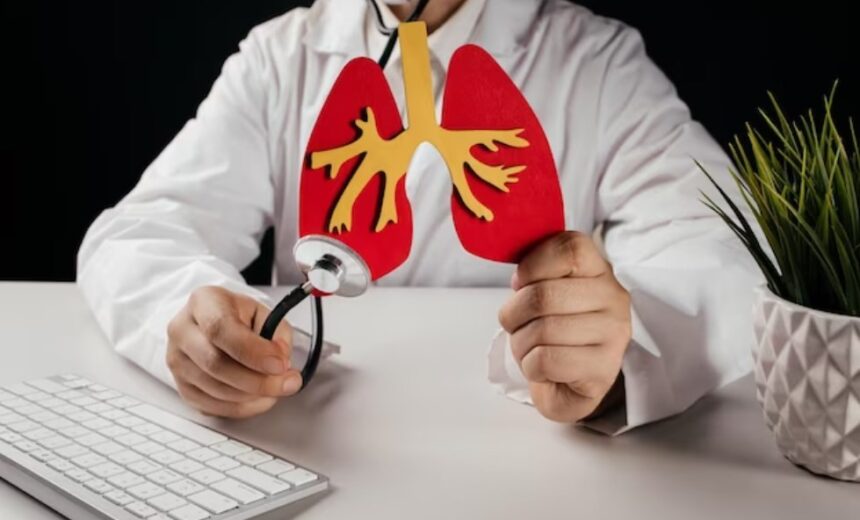Mastering Self-Care Strategies for Pulmonary Hypertension Management

Welcome to the journey of understanding and managing pulmonary hypertension — a health condition that is often underestimated. Pulmonary hypertension (PH), a type of high blood pressure that affects the arteries in the lungs and the right side of the heart, can pose significant health risks if not well-managed.
The good news? Empowerment through self-care strategies can significantly alleviate its effects, improve your quality of life, and enhance your health.
This comprehensive guide unveils the essentials of PH, its implications, and the self-care measures that can help you take control.
Demystifying Pulmonary Hypertension
Pulmonary Hypertension (PH), a condition impacting the lungs and the heart, is characterized by elevated blood pressure within the arteries of the lungs. Unlike standard hypertension, which typically involves systemic blood pressure, PH specifically targets the arteries in your lungs and the right side of your heart.
In PH, the tiny blood vessels known as arterioles in your lungs constrict or become blocked, escalating the difficulty for blood to flow freely. The result is increased pressure within the arteries, causing the right ventricle of the heart (which pumps blood to the lungs) to strain excessively.

This overworking of the heart can lead to its weakening and eventual failure, thus understanding PH is essential. The symptoms often mirror other heart and lung conditions, and can include shortness of breath, chest pain, fatigue, light-headedness, palpitations, and swelling in the ankles, legs, and eventually in the abdomen. Recognizing PH as more than standard hypertension allows for more effective and targeted management strategies.
The Consequences of Unmanaged Pulmonary Hypertension
While any medical condition can have implications for our well-being, the repercussions of unmanaged Pulmonary Hypertension stretch beyond the realm of physical discomfort. They reach deep into the essence of our daily lives, influencing our routines, activities, and even our mental health. Let’s explore the potential dangers of unchecked PH and understand why management is not just beneficial, but crucial.
Unmanaged Pulmonary Hypertension can have serious health implications:
- Right Heart Failure: PH can lead to right heart failure, a condition where the right ventricle can’t pump enough blood to the lungs;
- Fluid Buildup: Resulting in swelling in your ankles, legs and abdomen, and causing shortness of breath;
- Oxygen Deprivation: This can cause dizziness or fainting spells, especially during physical activities due to reduced oxygen in the blood;
- Emotional Impact: The chronic nature of PH and the limitations it places on your lifestyle can lead to mental health issues such as anxiety and depression.
The overarching effects of untreated PH necessitate proactive self-care and management strategies to mitigate these potential risks.
The Power of Self-Care in PH Management
The key to managing Pulmonary Hypertension might be closer than you think – it’s within you. Empowered self-care is a crucial component of successful PH management, offering a way to not only manage symptoms but to enhance your overall quality of life. Join us as we delve into the world of personal wellness and its transformative power in dealing with PH.
Here’s how to integrate self-care into your routine:
- Medication: Adhere to your prescribed medication regimen;
- Exercise: Regular exercise, suited to your capability, can improve cardiovascular health. Always seek professional advice before starting a new routine;
- Nutrition: A balanced diet is key to maintaining optimal body weight and overall health;
- Mindfulness: Incorporating mindfulness exercises into your daily routine can alleviate stress and enhance mental well-being.
The power of self-care in managing PH lies in integrating various components into a holistic lifestyle approach.

Solutions for Pulmonary Hypertension Self-Management
If self-nurturing is the key to managing PH, the question arises – what is the lock, and how can we turn the key effectively? The answer lies in understanding the variety of solutions available for PH self-management. In this section, we present a roadmap of practical and personalized solutions, each offering a different way to navigate the journey toward improved health.
Here are several solutions for self-management:
- Regular Monitoring: Track your symptoms regularly and understand the warning signs of worsening PH;
- Set Physical Goals: Work with healthcare professionals to set realistic physical activity goals;
- Medical Follow-ups: Regular follow-ups with your healthcare team can help track disease progression and adjust treatments as needed;
- Support Groups: These can provide emotional support and practical advice from people who are going through the same journey.
Embracing a proactive role in managing PH can dramatically improve quality of life and long-term health outcomes.
Tips and Recommendations for Effective Self-Care
Having explored the ‘what’ and ‘why’ of Pulmonary Hypertension, it’s time to delve into the ‘how.’ How can you, as someone living with PH or someone caring for a loved one with PH, make a real difference? Here, we equip you with practical tips and scientifically-backed strategies to help you enhance your PH self-maintenance routine.
To better manage PH, here are some actionable tips:
- Rest: Listen to your body and rest when needed. Overexertion can worsen symptoms;
- Healthy Weight: Maintain a healthy weight to reduce the strain on your heart;
- Hydration: Stay hydrated but monitor your fluid intake if your doctor has recommended restriction;
- Avoid High Altitudes: High altitudes can exacerbate PH symptoms;
- No Smoking: Smoking can further damage your lungs, so quitting is essential;
- Positive Mindset: Maintain a positive mindset and seek support when needed.
Your journey with PH is unique, and these strategies are here to support you every step of the way. Always consult with your healthcare provider before making any significant changes to your management strategy.
Key Takeaways
Understanding PH Pulmonary hypertension is a serious condition affecting the arteries in the lungs. Importance of Management Unmanaged PH can lead to significant health risks. The Role of Self-Care A well-rounded self-care routine can play a pivotal role in managing PH. Solutions for Self-Management Practical and personalized solutions are available to facilitate PH self-management.
Conclusion
Managing PH doesn’t have to be an uphill battle. Armed with the right knowledge and self-care strategies, you can significantly improve your quality of life. Remember, your active participation is key in this journey, and every step forward counts.
Remember, we’re in this together. Your well-being is paramount, and this guide aims to empower you to make informed decisions about your health.








